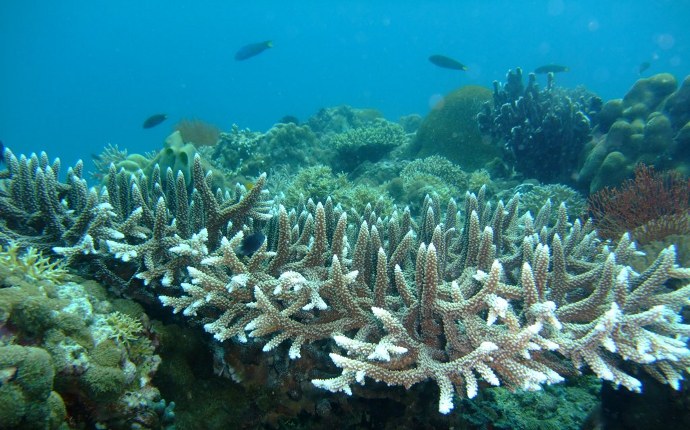Last month we reported on a scientific survey that showed evidence that corals that had been previously stressed by past bleaching events were more likely to survive future bleaching events. This month another paper has been published lending additional evidence that this might be the case.
Published on March 30, the paper “Historical Temperature Variability Affects Coral Response to Heat Stress” by Jessica Carilli, Simon Donner, and Aaron Hartmann report their findings on this subject.
What they found was that corals that survived past heat stress events in the past were more likely to survive future heat stress events. For their study, they investigated Porties spp. coral in the Gilbert Islands, Republic of Kiribati as they had been subjected to past heat stress events in 2004 and 2009.
According to their paper:
The spatial pattern in skeletal growth rates and partial mortality scars found in massive Porites sp. across the central and northern islands suggests that corals subject to larger year-to-year fluctuations in maximum ocean temperature were more resistant to a 2004 warm-water event. In addition, a subsequent 2009 warm event had a disproportionately larger impact on those corals from the island with lower historical heat stress, as indicated by lower concentrations of triacylglycerol, a lipid utilized for energy, as well as thinner tissue in those corals.
As reported by The University of British Columbia: “Even through the warming of our oceans is already occurring, these findings give hope that coral that has previously withstood anomalously warm water events may do so again,” says Carilli. “While more research is needed, this appears to be good news for the future of coral reefs in a warming climate.”










0 Comments